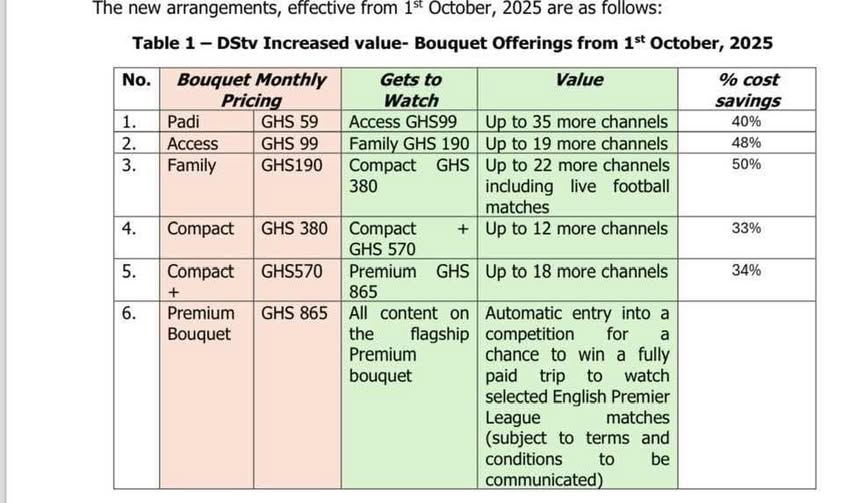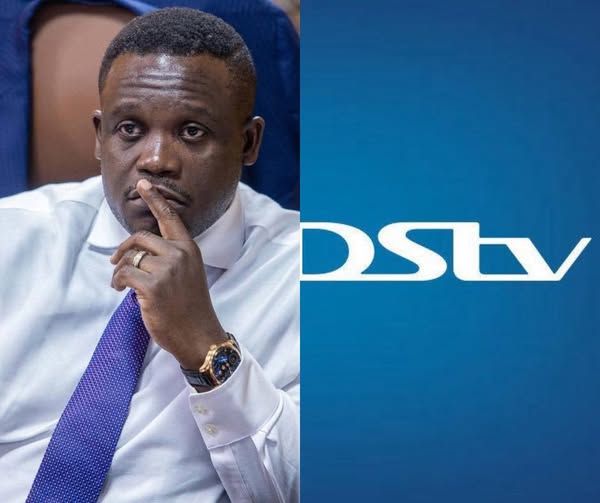Ghanaian DStv subscribers are set to enjoy a significant boost in value following what the government has described as a major concession by MultiChoice Africa.
The development was announced by the Minister for Communication, Digital Technology, and Innovations, Samuel Nartey George, at a press briefing in Accra on Monday, September 29, 2025.

According to the Minister, MultiChoice Africa has committed to an “unprecedented increased value offer” that applies exclusively to the Ghanaian market. The concession comes after weeks of negotiations and regulatory pressure over DStv subscription pricing.
“MultiChoice Africa has committed to an unprecedented increase in value offer only in Ghana, which will result in Ghanaian DStv subscribers getting more services for less,” Mr. George told reporters.
He explained that depending on the package, subscribers will receive between 33% and 50% more value over the next three months.
The concession will run for three months, after which the stakeholder committee established by the National Communications Authority (NCA) will reconvene to review the packages and decide on long-term adjustments.
The committee, formed on September 8, 2025, was tasked with evaluating the fairness and sustainability of DStv’s pricing model in Ghana.
The announcement follows weeks of heightened tension between the government and MultiChoice Ghana.
Public dissatisfaction had mounted over rising subscription fees, leading Minister George to issue repeated threats of regulatory action unless changes were made. MultiChoice, however, defended its pricing structure, citing operational costs, content licensing, and market dynamics.
The standoff generated widespread debate about the affordability of pay-TV services in Ghana, with consumers and civil society groups calling for reforms.
With this new concession, the tone between the government and MultiChoice appears to be shifting toward collaboration.
“This is a win for Ghanaian consumers,” the Minister said. “We have secured a deal that provides real value for money, and we will continue to hold service providers accountable.”
Industry watchers believe the development could set a precedent for how governments negotiate with multinational service providers to address affordability concerns while ensuring quality service delivery.

For ordinary Ghanaians, the concession means enjoying higher-tier DStv content — including movies, sports, documentaries, and international channels — at the same cost they currently pay.
Analysts note that the three-month window will also serve as a testing ground for gauging whether the arrangement is commercially sustainable for MultiChoice and beneficial enough for Ghanaian subscribers.
As the television landscape evolves with increasing competition from streaming platforms, this concession could help retain subscribers who may have otherwise cut back on pay-TV services.
For now, Ghanaian households can look forward to more entertainment for less, while keeping a close eye on what happens after the trial period ends.




